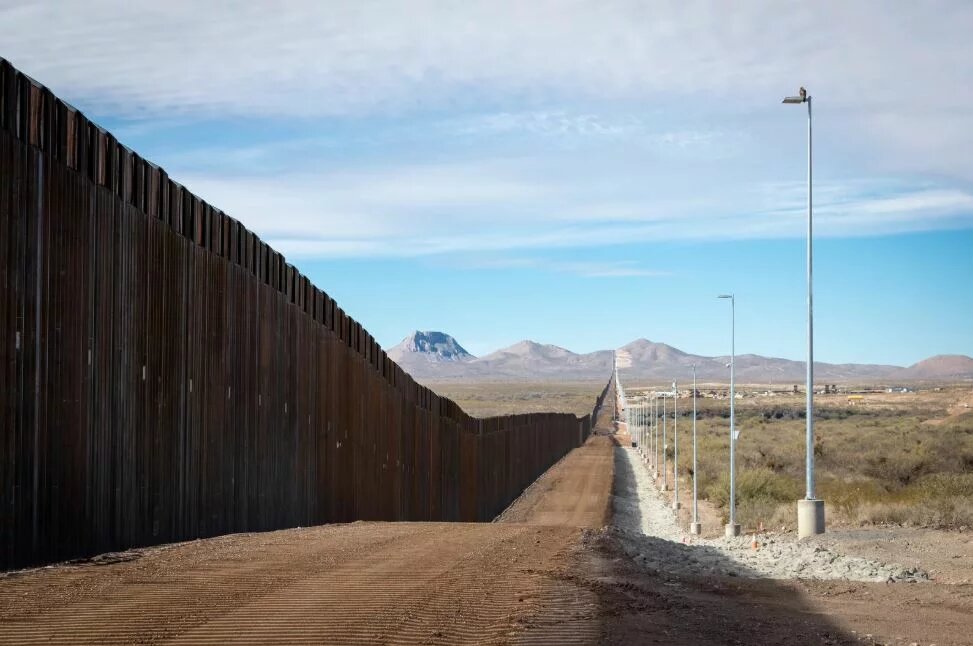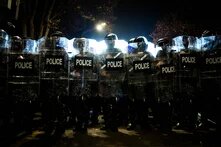On World Refugee Day, the US stands at a crossroads: once a global leader in refugee protection, it now faces rising rights violations, legal erosion, and harsh immigration policies that threaten both vulnerable communities and democratic principles.

Few countries embody the contradictions of displacement and migration as starkly as the United States. For decades, the US welcomed far more resettled refugees—people who flee persecution, live in limbo in a second country, and eventually find permanent safety in the US—than any other nation in the world. It has granted temporary protection to millions displaced by sudden crises or instability in their home countries. As of last fall, for example, about 200,000 Haitians and nearly 350,000 Venezuelans had been granted Temporary Protected Status due to the ongoing instability and conflict there.
At the same time, thousands arriving at US borders have faced the trauma of an expansive immigration detention system and the near-impossibility of navigating a broken immigration process, independent of which party controls the White House. Whether because of poor screening or systematic policies, many have been denied the right to seek asylum outright, in direct violation of international law. Dreamers—young people brought to the US as children, who know no other home—have repeatedly been denied the chance to become citizens. The contradictions are endless.
The US is at a turning point not only in its refugee and immigration policy and practice, but in the country’s understanding of itself as a nation of immigrants.
June is Immigrant Heritage month in the US and today marks the 25th anniversary of the United Nation’s World Refugee Day. Yet these past weeks have seen both an unprecedented effort to carry out sweeping and ruthless mass deportations and a groundswell of civil resistance in defense of immigrant communities. The US is at a turning point not only in its refugee and immigration policy and practice, but in the country’s understanding of itself as a nation of immigrants. Years of right-wing scapegoating of vulnerable immigrant populations have paved the way for an administration that embraces punitive measures—not only against refugees and immigrants, but also against their (mixed status) families, neighbors, and advocates.
But something greater is at risk, too. Attacks on refugees and immigrants no longer manifest simply as more legal obstacles or the blatant denial of protection. The Trump administration’s policies fundamentally undermine the rule of law, creating a litmus test for what a democratic system can sustain in the face of relentless assault. These developments are a warning—and other democracies must take notice.
The number of globally displaced people breaks new records each year, reaching over 123 million people by the end of 2024. At the same time, access to protection has been rapidly eroding in the United States. The first Trump administration dismantled the US refugee resettlement program and by its end shut down virtually all access to asylum at U.S. borders, normalizing the vilification of people fleeing persecution. The Biden administration restored the refugee resettlement program, attempted new programs to allow some people to enter the US, and walked back or sought to remedy many of the Trump administration’s most egregious refugee and immigration policies.
But it was limited by Congressional inaction. And as both migration and asylum became an increasingly fraught political issue, even Democrats were reluctant to reverse course on some of Trump’s most blatantly illegal anti-asylum policies. Case in point: it took Biden years to end Trump’s notorious “Title 42” policy, which allowed border officials—under the pretext of public health and disease prevention—to return people to Mexico without any screening for whether they should be processed for asylum. When the policy was finally reversed, the Biden Administration replaced it with further measures that severely restricted asylum access.
Ultimately, the failure to demonstrate US leadership in upholding international protections and Congress’ inability to pass meaningful reforms allowed false and fear-based rhetoric about immigration to dominate public discourse. Despite many local and state communities who continue to welcome newcomers, the virulence of right-wing anti-immigrant narratives has become increasingly difficult to unseat.
Emboldened by public sentiment, the Trump administration has recklessly violated US law in numerous immigration cases. When the US government deports people to a brutal Salvadoran prison with no chance of appeal and then openly defies courts to bring back those who were wrongly removed, it sets a dangerous precedent. When the US President, only days later, floats the idea that US citizens could also be jailed abroad, the steady erosion of the rule of law becomes impossible to ignore.
In light of the Trump administration’s dubious legal arguments—or outright defiance of unfavorable rulings—the question is no longer when the breakdown in the rule of law will occur, but how widespread it will become.
In this new era, people are intentionally and systematically being disappeared off the streets. Whether international students or longtime community members, they are targeted in public spaces, during court appointments that they are legally required to attend, at work or in schools, in a system intended to terrorize and create fear. The only safeguard against these actions—in the absence of Congressional action—are the courts. In light of the Trump administration’s dubious legal arguments—or outright defiance of unfavorable rulings—the question is no longer when the breakdown in the rule of law will occur, but how widespread it will become.
The harm to the safety and well-being of this country’s immigrant communities is already immense. But many experts warn that the Trump Administration’s denial of constitutional rights to immigrants threatens everyone’s rights. The administration is responding to growing protests with aggressive escalation, including the nearly unprecedented deployment of the military inside the country. US democracy now relies on already-targeted courts and civil society as the remaining bulwark against illegal overreach. Other countries, especially liberal democracies in Europe who, for now, remain bulwarks against the rising tide of global authoritarian tendencies, should pay close attention to this warning.
The answers to preventing and addressing global displacement are by no means simple. But migration and security have never been mutually exclusive. The US example shows that anti-migrant and refugee rhetoric and policy not only harm those who most need protection but also pave the way to a dangerous democratic backslide.
This text first appeared on the website of the Heinrich Böll Foundation in Washington, DC.

